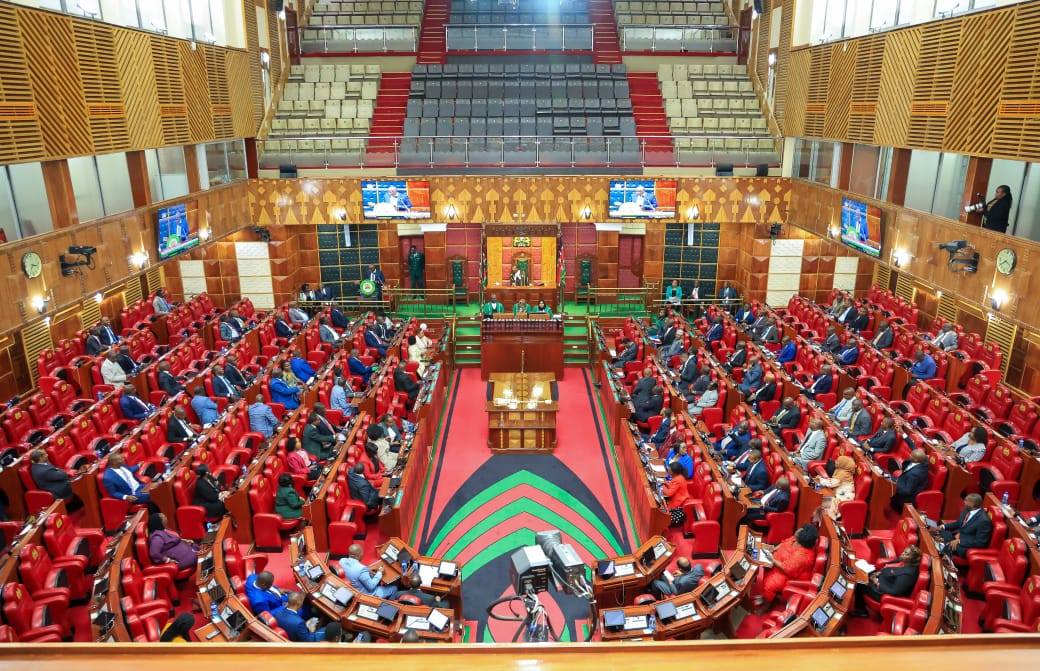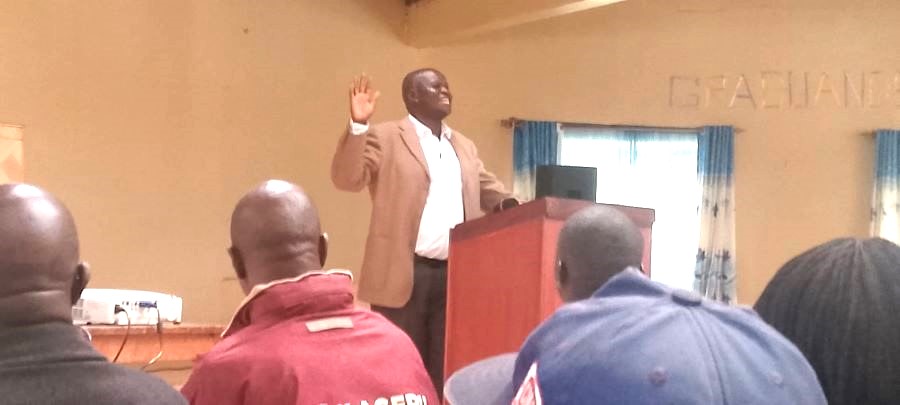The Kenya National Examinations Council (KNEC) has over the years refined its security protocols to protect the integrity of the Kenya Certificate of Secondary Education (KCSE). What was once an exercise plagued by suspicion, leakages, and collusion has now evolved into one of the most tightly monitored national events. Through meticulous planning, strict accountability, and coordinated efforts among various state agencies, the council has built a system that virtually guarantees zero malpractice.
One of the most notable measures is the strict handling of examination materials. Each morning, school heads and centre managers collect examination papers from designated containers under the escort of security officers. These containers are located at the sub-county headquarters, often guarded by multi-agency security teams. The morning papers are picked, administered, and returned by 1 p.m. as the afternoon papers are being picked up. This back-to-back exchange ensures that no examination materials remain in the examination centres beyond the scheduled sitting period. It is a remarkable show of logistical precision that minimizes opportunities for tampering, storage, or premature access to any paper.
In the past, leakages often occurred through photocopying or the sharing of soft copies before candidates sat for papers. That loophole has been decisively sealed. By ensuring that no paper remains in schools overnight, KNEC has eliminated a key weakness in the examination process. The chain of custody is traceable at every point, with each paper’s movement logged and verified.
Equally significant is the introduction of personalized question paper booklets. Each candidate receives a booklet that bears their name and index number, eliminating the possibility of exchanging papers or submitting work on someone else’s behalf. The booklets are printed and bound in such a way that they do not require additional answer sheets. This innovation has curbed the old malpractice where candidates would smuggle unauthorized materials or insert fake answer sheets into their scripts. The personalized design promotes accountability—each student knows that their work can be traced directly to them.
Another measure that has redefined examination integrity is the deployment of primary school teachers as invigilators and supervisors in secondary school examinations. This decision was both strategic and psychological. Secondary school teachers, being familiar with the candidates and the syllabus, were often susceptible to pressure from students, colleagues, or school administrators to “assist” in subtle ways. By bringing in teachers from the primary sector, KNEC introduced an impartial layer—professionals who have no emotional or professional ties to the candidates. The result has been a neutral invigilation environment where the rules are applied firmly and uniformly.
READ ALSO:
These primary school teachers have shown remarkable diligence. They conduct the exercise with a sense of duty and pride, knowing that their neutrality upholds the credibility of Kenya’s education system. Moreover, their involvement bridges the basic and secondary education sectors, reminding all educators that examinations are not just assessments, but national trust exercises.
To reinforce the invigilation process, KNEC has established a robust monitoring system. Monitoring teams drawn from the Ministry of Education, Teachers Service Commission, and other agencies make incognito visits to examination centres. These teams are unpredictable in their scheduling and often appear without prior notice. Their role is to observe, verify compliance with KNEC protocols, and report any irregularities. The psychological effect of these surprise visits has been profound—school heads, invigilators, and candidates alike remain vigilant, knowing that any lapse could attract severe penalties.
The monitoring teams have also introduced a culture of instant feedback. Any observed weakness is reported immediately to the sub-county examination command centre for prompt correction. This responsiveness prevents minor infractions from escalating into full-blown cases of malpractice. The combined presence of national monitors, security personnel, and county education officers has created a multi-layered oversight mechanism. It’s a web so tight that attempts at dishonesty are easily detected and swiftly dealt with.
Technology has also found its place in KNEC’s security architecture. Examination containers are equipped with digital locks and surveillance systems, while communication among centre managers and education officers is closely monitored. Cases of early exposure through social media have dwindled, thanks to the tracing capabilities of modern cyber forensics. Those who attempt to share fake or purported leaked papers online are tracked and prosecuted. The deterrent effect of such arrests has been enormous.
Beyond the physical and technological safeguards, KNEC has also invested in ethical reorientation. Teachers, candidates, and administrators are regularly sensitized on the value of academic honesty. The message is clear: examinations should measure merit, not manipulation. County education boards hold pre-exam briefings emphasizing integrity and the severe consequences of cheating. The penalties for examination malpractice are now not only well known but consistently enforced—disqualification, deregistration, and prosecution have become real deterrents.
These reforms have borne visible fruit. The KCSE examination period, once characterized by tension and suspicion, now proceeds with an atmosphere of calm and confidence. Parents, candidates, and the general public have regained trust in the process. KNEC’s insistence on discipline and transparency has restored faith in the national examination system as a true reflection of learners’ effort and teachers’ commitment.
The ultimate proof of success lies in the outcomes. The recent KCSE sittings have been conducted without a single confirmed case of paper leakage. Isolated incidents of attempted cheating are swiftly dealt with before they affect the wider process. This consistency demonstrates that the measures are not cosmetic—they are systemic, coordinated, and deeply institutionalized.
As the national examinations continue, the Kenyan model stands as a case study for other countries battling examination malpractices. The philosophy is simple but powerful: accountability at every step, transparency in every transaction, and zero tolerance for dishonesty. Through its layers of security—ranging from morning and afternoon paper exchanges to personalized booklets and impartial invigilators—KNEC has proven that integrity can indeed be engineered into systems.
The future of the KCSE is therefore secure, not because of luck, but because of deliberate policy choices. When the last paper is written and the last booklet sealed, Kenya can look back with pride knowing that fairness has triumphed. The message to all is unmistakable: in today’s Kenya, examination success is earned, not bought by examination malpractice.
By Ashford Kimani
Ashford teaches English and Literature in Gatundu North Sub-county
You can also follow our social media pages on Twitter: Education News KE and Facebook: Education News Newspaper for timely updates.
>>> Click here to stay up-to-date with trending regional stories
>>> Click here to read more informed opinions on the country’s education landscape






